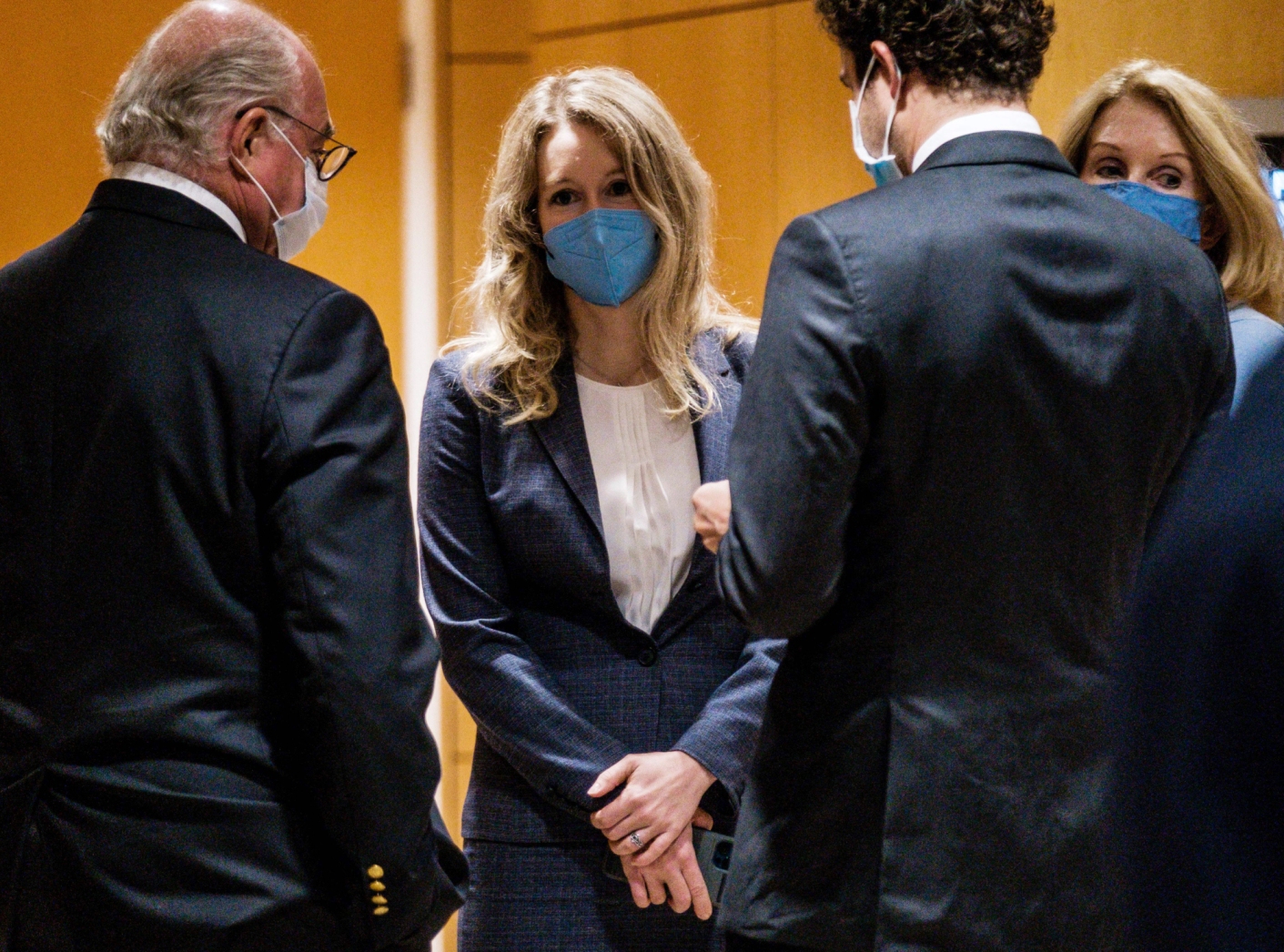Theranos’ use of workers’ blood led to whistleblower’s concerns

Theranos whistleblower Erika Cheung’s first inkling that the company’s technology fell short of founder Elizabeth Holmes’ claims arose because the startup used its workers’ blood to check how well tests performed, the former laboratory assistant testified Tuesday.
“Employees would essentially donate their blood to Theranos for cash,” Cheung told jurors on the second day of Holmes criminal trial, without saying how much was paid. When Cheung’s blood was used to “validate” Vitamin D testing on Theranos machines, “it would always come up that I was deficient,” she testified. But her results didn’t show the same problem when her bloodwork was done on another company’s machines that Theranos kept upstairs to conduct tests its own machines couldn’t perform.
Cheung, who joined Theranos in 2013 straight out of college at UC Berkeley, said she’d been “star-struck” during her job interview with Holmes, who is charged with a dozen felony fraud counts. She saw Holmes, a rare high-profile female technology entrepreneur, as a potential example for other young women in science and engineering, Cheung said.
“She had a charisma to her,” Cheung testified. “She had a strong sense of conviction about her mission.”
Scarcely a month after Cheung started her new job, she said she began finding problems with the technology that was supposed to revolutionize blood testing by enabling a full range of tests on a few drops of blood. Ultimately, Cheung resigned and blew the whistle to the government on what she saw at Theranos.
Cheung’s internal email about quality-control issues in the Theranos lab caught the attention of Holmes, who asked in an email thread that was shown to jurors how the issue was resolved. A lab leader responded that the issue had been taken care of by getting rid of the data that showed a problem.
Holmes is accused of bilking investors out of hundreds of millions of dollars, defrauding patients, and misleading doctors and patients with false claims about her company’s technology. The Stanford University dropout, who founded the Palo Alto blood-testing startup in 2003 at age 19, and her co-accused, former company president Sunny Balwani, have denied the allegations.
Earlier Tuesday in U.S. District Court in San Jose, federal prosecutors and the defense presented a variety of Theranos financial data to jurors, much of it focused on revenue projections that prosecutor Robert Leach said had been approved by Holmes. But Holmes lawyer Lance Wade was quick to get the day’s first witness, former company finance chief So Han Spivey, to note that Balwani — who Holmes claims coerced and abused her during a long-running romantic relationship — was involved in producing the projections. Balwani is to be tried separately next year.
During Cheung’s testimony, Judge Edward Davila excused the jury so lawyers for both sides could argue over whether certain emails could be shown to jurors. Wade, with the jury absent, claimed that Holmes was unaware of much that went on in Theranos’ labs, which Balwani oversaw. Prosecutor John Bostic countered that “substantial evidence” showed Holmes’ involvement in the company in general, and the “pervasive nature” of her communications with Balwani was evidence of her awareness of lab matters.

